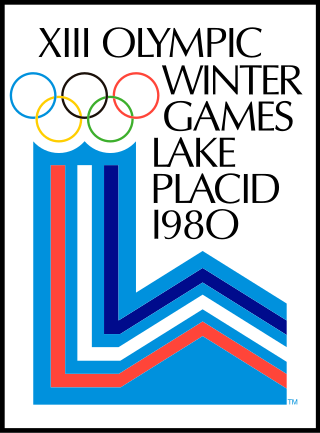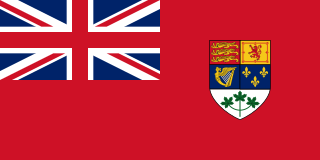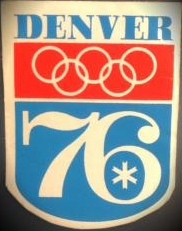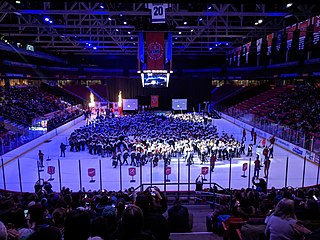
The 1932 Summer Olympics were an international multi-sport event held from July 30 to August 14, 1932, in Los Angeles, California, United States. The Games were held during the worldwide Great Depression, with some nations not traveling to Los Angeles as a result; 37 countries competed, compared to the 46 at the 1928 Games in Amsterdam, and even then-U.S. President Herbert Hoover did not attend the Games. The organizing committee did not report the financial details of the Games, although contemporary newspapers stated that the Games had made a profit of US$1 million.

The 1980 Winter Olympics, officially the XIII Olympic Winter Games and also known as Lake Placid 1980, were an international multi-sport event held from February 13 to 24, 1980, in Lake Placid, New York, United States.

The 1932 Winter Olympics, officially known as the III Olympic Winter Games and commonly known as Lake Placid 1932, were a winter multi-sport event in the United States, held in Lake Placid, New York, United States. The games opened on February 4 and closed on February 13. It was the first time the Winter Games were held outside of Europe and the first of four Winter Olympics held in the United States; Lake Placid hosted again in 1980.

The men's ice hockey tournament at the 1932 Winter Olympics in Lake Placid, United States, was the fourth Olympic Championship, also serving as the sixth World Championships. Canada, represented by the Winnipeg Hockey Club, won its fourth consecutive Olympic gold medal and sixth consecutive World Championship. The United States secured the silver medal and Germany claimed one of its three all-time hockey medals by taking the bronze. Overall, four teams participated, with only two European associations making the trip due to the worldwide Great Depression. The other European teams instead played at the 1932 European Championship.

National Olympic Committees that wish to host an Olympic Games select cities within their territories to put forth bids for the Olympic Games. The staging of the Paralympic Games is automatically included in the bid. Since the creation of the International Olympic Committee (IOC) in 1894, which successfully appropriated the name of the Ancient Greek Olympics to create a modern sporting event, interested cities have rivaled for selection as host of the Summer or Winter Olympic Games. 51 different cities have been chosen to host the modern Olympics: three in Eastern Europe, five in East Asia, one in South America, three in Oceania, nine in North America and all the others in Western Europe. No Central American, African, Central Asian, Middle Eastern, South Asian, or Southeast Asian city has ever been chosen to host an Olympics.

Canada competed at the 1932 Winter Olympics in Lake Placid, United States. Canada has competed at every Winter Olympic Games.

Finland competed at the 1932 Winter Olympics in Lake Placid, New York, United States. Finland has competed at every Winter Olympic Games.

The Mt. Van Hoevenberg Olympic Bobsled Run is a venue for bobsleigh, luge and skeleton in the United States, located at the Lake Placid Olympic Sports Complex in Lake Placid, New York. This venue was used for the 1932 and 1980 Winter Olympics and for the only winter Goodwill Games in 2000. The track hosted both the first FIBT World Championships and FIL World Luge Championships held outside of Europe, doing so in 1949 and 1983. The third and most recent version of the track was completed in 2000. In 2010 the bobsled track was listed on the National Register of Historic Places.

The 2016 Winter Youth Olympics, officially known as the II Winter Youth Olympic Games, took place in and around Lillehammer, Norway, from 12 to 21 February 2016. They were the fourth Youth Olympic Games and the second winter edition. Lillehammer was awarded the games on 7 December 2011 as the only candidate. The games reused venues from the 1994 Winter Olympics; this made Lillehammer the first city to host both regular and Youth Olympics. In addition to Lillehammer, Olympic events were staged at venues in Hamar, Gjøvik and Øyer.
For the 1932 Winter Olympics in Lake Placid, New York, United States, a total of five sports venues were used. This was unchanged from the previous games in St. Moritz. For the first time in the history of the Winter Olympics, an indoor venue was used for the figure skating and six of the twelve ice hockey events at the Olympic Arena. The first bobsleigh venue outside Europe was constructed for use. Four different 18 km and five different 50 km venues were submitted for approval prior to the Olympics. After the 1932 games, three of these venues served as host for their respective championships that were held outside Europe for the first time.

For the 1980 Winter Olympics in Lake Placid, New York, United States, a total of seven sports venues were used. All five of the venues used for the 1932 Winter Olympics were also used at the 1980 Winter Games with adjustments. These adjustments included electronic scoreboards, increased refrigeration, and the addition of a separate luge track. This was the last Winter Olympics where there were separate bobsleigh and luge tracks. The closest finish in Olympic history in cross-country skiing led skiing officials to time future events in hundredths of a second rather than tenths of a second. This would also apply to biathlon events. Eric Heiden won five gold medals at the speed skating oval while the "Miracle on Ice" took place between Americans and Soviets at the Olympic Center. In the late 1990s, the luge track was demolished and a new combination track was constructed in time for the only Winter Goodwill Games held. The sliding venue was named to the American National Register of Historical Places in February 2010.

The selection process for the 1976 Winter Olympics consisted of four bids, and saw Denver, Colorado, United States, selected ahead of Sion, Switzerland; Tampere, Finland; and Vancouver, British Columbia, Canada. The selection was made at the 70th International Olympic Committee (IOC) Session in Amsterdam on 12 May 1970. The year 1976 was the centennial of the state of Colorado and bicentennial of the United States.
Bids were due by 28 November 2013, the candidates cities were selected on 5 December 2014 and Lausanne was elected host city on 31 July 2015.

The Olympic Center is a sports complex in Lake Placid, New York that acted as the Olympic Park for both the 1932 and the 1980 Winter Olympics. The venues inside this area is the main complex of the 2023 Winter World University Games.

The Denver Winter Olympics referendum was held in November 1972 following the awarding to Denver of the 1976 Winter Olympics.











